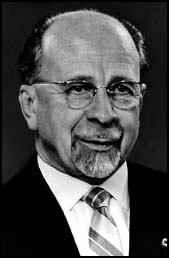Walter Ulbricht
1893 – 1973
 Walter Ulbricht was born Walter Ernst Paul Ulbricht, in Leipzig in June 1893.
He was a member of the Socialist Labour youth and in 1912 of the Sozialistische Partei Deutschland (SPD). After the
first world war Ulbricht joined the Spartakusbund, which won the name
“Communist Party of Germany" (KPD) in 1919. In the mid-1920s he studied at the party school in Moscow. From 1926 to 1933 he was a member of the Saxon Landtag and, from 1928 to 1933, a member of the Reichstag for the KPD. In 1935 he fled from Germany, later
settling in Moscow.
Walter Ulbricht was born Walter Ernst Paul Ulbricht, in Leipzig in June 1893.
He was a member of the Socialist Labour youth and in 1912 of the Sozialistische Partei Deutschland (SPD). After the
first world war Ulbricht joined the Spartakusbund, which won the name
“Communist Party of Germany" (KPD) in 1919. In the mid-1920s he studied at the party school in Moscow. From 1926 to 1933 he was a member of the Saxon Landtag and, from 1928 to 1933, a member of the Reichstag for the KPD. In 1935 he fled from Germany, later
settling in Moscow.
After the German invasion of the Soviet Union Ulbricht became a member of the National Committee for a free Germany (NKFD), called into life by the Soviet Union. After the second world war, he returned to Germany and settled in the Soviet-occupied zone. The Sozialistische Einheitspartei Deutschland (SED) was created in 1946, and in 1950, Ulbricht was elected SED General Secretary.
During the Berlin revolt in 1953 Ulbricht and the SED were in confusion; they had to use force against the farmers and workers in what was supposed to be a peasants' and workers' utopia. Eventually the Soviets put down the rebellion at the expense of, presumably, many hundreds of lives. The power of the SED and Ulbricht from that moment were untouchable.
Ulbricht kept faithfully to the Moscow line into the 1970s, but at the beginning of the 1970s he took a more independent course. As a result, in May 1971 he had to resign his position as General Secretary of the SED. He remained Chairman of the Council of State.
Walter Ulbricht died in August 1973 at the age of 80 in Berlin. He was succeeded by Erich Honecker.
Works
The Reformists Propagate Production Sabotage in the USSR, January 1930
How Do We Combat Fascism?, November 1930
Our Party Is the Only Workers Party, November 1931
Speech to the Reichstag, February 1932
The Hamburg Uprising under the Leadership of Ernst Thälmann, date unknown, but no later than 1933
Article in Die Welt, February 1940
The Historical Role of Karl Liebknecht, August 1951
Whither Germany? Speeches and Essays on the National Question (1930-1965), 1966
What is at Stake in Germany?, 1966
A Contribution of the German Democratic Republic to Peace in Europe, 1966
The Unity of Germany Must Serve Peace, April 1966
The Path to the Future Fatherland of the Germans, April 1966
For European Security and Relaxation Between the Two German States, September 1966
Current Questions of Political Development in West Germany, November 1966
The German Democratic Republic Acts in the Interests of the German Nation, March 1968
With Confidence, Optimism and Fresh Energy We Enter the Year of the 20th Anniversary of the German Democratic Republic, January 1969
Twenty-five Years After the Unification of the Working Class, December 1970
We Shall Continue On Our Good Road of Peace and Socialism, January 1971
Last updated: 3 November 2024